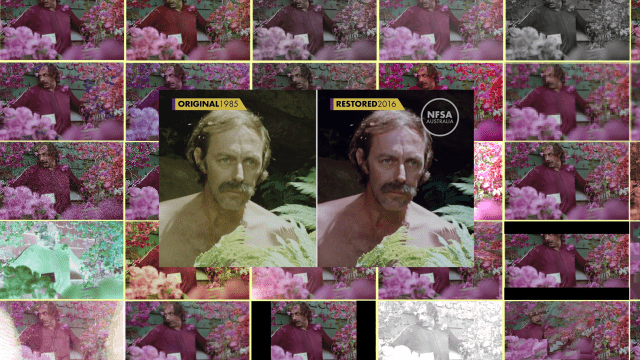
Please join us for the next event where Zach Karpinellison will present his Exit Seminar “Versions & The NFSA“ on Wednesday, 24 April from 5:30-6:30pm in person (BPB W3.03) and via Zoom.
What version of Starstruck have you seen? Do you remember the cut of Bliss where Harry tells the story of Little Titch? Was it possible for you to see Wake in Fright between 1971 and 2009?
These questions stem from a reality that is often overlooked by academic study of film archives. We understand that these institutions hold films in their collections, but the truth is much richer and more complex. In fact, organisation like the National Film and Sound Archive (NFSA) here in Canberra, hold not just these films, but multiple versions of each of these films. This can mean any number of things. Sometimes the versions refer to different cuts. Sometimes they refer to different formats or to censored copies. And sometimes these versions are new — they are created by the archive as part of a restoration initiative, or simply as a byproduct of practices of preservation and digitisation.
The film archive is not typically recognised as a producer of media. Instead, standard definitions associate archival practice with the maintenance and protection. As such it is understood as a repository – a place where films are held, cared for, made available for examination and more broadly accessed but not created. In this exit seminar, I reflect on the PhD I began in 2021 that takes as its subject both these film-versions and the NFSA as an institution. I argue that the NFSA is a kind of production culture, not unlike Hollywood or the Australian film industry. It is precisely the NFSA’s production of restorations and film-versions that prompts my inquiry.
In this seminar, I’ll provide an overview of my research thus far, and offer some examples that demonstrate a response to the two questions my thesis poses. Firstly, what are the implications of using versions of films to produce restorations for the public? And secondly, I ask how do the staff of the NFSA understand and theorise their relationship to the preserved materials in the collection? Both of these research questions allow me to reflect on the cultural and political status of the archive at the time of these new productions.
In response to these questions I have devised two connected methodological strategies: versional analysis and interviews with relevant stakeholders. This exit seminar provides an opportunity for me to offer some of my findings, as well as demonstrate the ways that my methodology opens up avenues for further research.
Zach Karpinellison is an interdisciplinary PhD candidate at the Australian National University. His research takes place at the intersection of museum and media studies. He is in the final year of his doctoral program and completing work on his thesis titled Versions and The NFSA.
Location
Speakers
- Zach Karpinellison
Event Series
Contact
- Wesley Lim